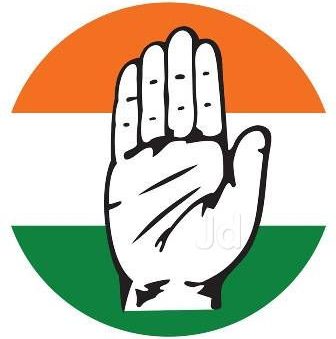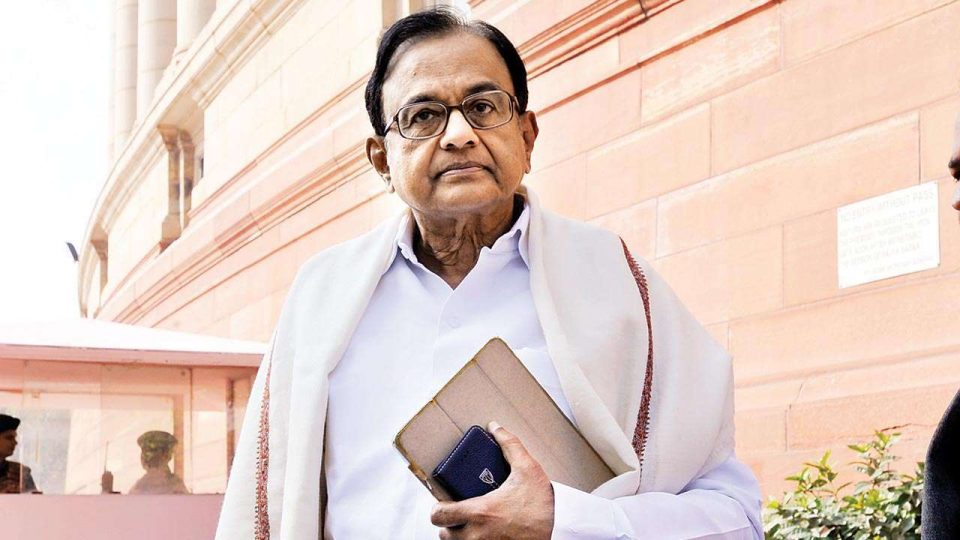P. Chidambaram
Palaniappan Chidambaram (born 16 September 1945) is an Indian politician and former attorney who currently serves as Member of Parliament, Rajya Sabha and formerly served as the Union Minister of Finance of India. He was the Finance Minister starting in May 2004 through 2014, except for a three and a half year stint – beginning November 2008 – as Home Minister, in the wake of the 2008 Mumbai terror attacks. Chidambaram returned as Finance Minister in July 2012, succeeding Pranab Mukherjee, who demitted office to become the President of India.
Chidambaram was born to Kandanur L. Ct. L. Palaniappa Chettiar and Lakshmi Achi in Kanadukathan in the Sivaganga District in the state of Tamil Nadu, India. Chidambaram did his schooling at the Madras Christian College Higher Secondary School. He passed the one-year pre University course from Loyola College, Chennai. After graduating with a BSc degree in statistics from the Presidency College, Chennai, he completed his Bachelor of Laws from the Madras Law College (now Dr. Ambedkar Government Law College) and his MBA from Harvard Business School in the class of 1968. He also holds a master’s degree from Loyola College in Chennai.
During this time his politics inclined to the left and in 1969 he joined N. Ram, later editor of The Hindu, and the women’s activist Mythili Sivaraman in starting a journal called the Radical Review.
He enrolled as a lawyer in the Madras High Court, becoming a senior advocate in 1984. He had offices in Delhi and Chennai and practised in the Supreme Court and various high courts of India.
P. Chidambaram in his office after taking over the charge of the Union Minister of Finance in New Delhi on May 24, 2004
Chidambaram was elected to the Lok Sabha (Lower House) of the Indian Parliament from the Sivaganga constituency of Tamil Nadu in general elections held in 1984. He was a union leader for MRF and worked his way up in the Congress party. He was the Tamil Nadu Youth Congress president and then the general secretary of the Tamil Nadu Pradesh Congress Committee unit. He was inducted into the Union (Indian federal) Council of Ministers in the government headed by Prime Minister Rajiv Gandhi on 21 September 1985 as a Deputy Minister in the Ministry of Commerce and then in the Ministry of Personnel. His main actions during his tenure in this period was to control the price of tea and he has been criticized by the Government of Sri Lanka for destroying the Sri Lankan tea trade by fixing the prices of the commodity in India using state power. He was elevated to the rank of Minister of State in the Ministry of Personnel, Public Grievances and Pensions in January 1986. In October of the same year, he was appointed to the Ministry of Home Affairs as Minister of State for Internal Security. He continued to hold both offices until general elections were called in 1989. The Indian National Congress government was defeated in the general elections of 1989.
In June 1991, Chidambaram was inducted as a Minister of State (Independent Charge) in the Ministry of Commerce, by the then Prime Minister Mr. P. V. Narasimha Rao; a post he held till July 1992. He was later re-appointed Minister of State (Independent Charge) in the Ministry of Commerce in February 1995 and held the post until April 1996. He made some radical changes in India’s export-import (EXIM) policy, while at the Ministry of Commerce.
On 30 November 2008, he was appointed the Union Home Minister following the resignation of Shivraj Patil. He has been credited with taking the bold decision of prioritising elections above corporate demands to deploy security for the 2009 Indian Premier League.
In 2009, Chidambaram was re-elected from the Sivaganga Lok Sabha constituency in the Congress and retained the Home ministry. He was one of the representatives of the Central Government when a tri-party agreement was signed with the Gorkha Hill Council and the Government of West Bengal, an agreement which was a result of Mamata Banerjee’s effort to end a decade long unrest in the hills of Darjeeling.
The Indian National Congress appointed P. Chidambaram as one of thirteen senior spokespersons on 15 September 2014. Sensing defeat, he ceded his seat to his son Karti in 2014, which resulted in electoral defeat for his son.
Chidambaram is a published author of several books :
• Fearless in Opposition: Power and Accountability (Publisher: Rupa Publications India; ISBN 978-8129145291)
• Standing Guard: A Year in Opposition (Publisher: Rupa Publications India; ISBN 978-8129139627)
• A View from the Outside: Why Good Economics Works for Everyone (Publisher: Penguin India; ISBN 978-0670081165)
[Source : Wikipedia]

